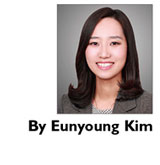 On December 17, 2014, the Korea Fair Trade Commission (KFTC) amended the review guidelines on unfair exercise of intellectual property rights (Revised Guidelines), effective December 24, 2014. In the Revised Guidelines, the KFTC identified grounds for enforcing laws related to the abuse of intellectual property rights by non-practising entities (NPEs) and standard essential patent (SEP) holders. It also clarified the activities that may constitute ‘acts of abuse’ relating to the exercise of intellectual property rights, and it supplemented other provisions. The following are some of the most significant revisions. Firstly, the Revised Guidelines define standard essential patents and address ‘requests for injunctions against infringement’ by SEP holders. The Revised Guidelines require that SEP right holders, in their dealings with third parties that are said to have infringed their patents, should comply with the principle of FRAND (fair, reasonable and non-discriminatory), and the principle requires that an SEP should be licensed to a third party on fair, reasonable and non-discriminatory terms. If an SEP holder seeks an injunction against a willing licensee, without engaging in good faith licensing negotiations, that is probably unreasonable and may constitute an ‘act of abuse’ of intellectual property rights. The KFTC states that the following need to be considered when determining whether an SEP holder has engaged in good faith negotiations: whether a formal negotiation proposal has been made; whether the period of negotiation was reasonably appropriate; whether the proposed licensing terms and conditions were reasonable and non-discriminatory; and whether there were attempts to seek arbitration if the parties were having difficulty reaching a resolution in their negotiations. Secondly, the KFTC defines non-practising entity and it specifies certain actions as ‘acts of abuse’ by NPEs. There are five categories of examples provided: charging excessive royalties; refusing to comply with FRAND principles; reaching an unfair agreement; initiating or threatening to initiate unfair patent litigation; and patent privateering (the practice by which established operating companies intentionally arm third party entities, often NPEs, with patents so that they can enforce the patents against competitors). Thirdly, the Revised Guidelines also clarify the standard for determining whether the exercise of intellectual property rights is legitimate, notwithstanding the fact that the exercise does not violate the Fair Trade Act. It provides that even where an act appears to be a reasonable and proper exercise of intellectual property rights on its face, the act cannot be deemed reasonable and proper if the underlying purpose of such enforcement activity is inconsistent with the broader intellectual property public policy objectives. In determining the legitimacy of an enforcement act, the substance of the Patent Act and its related legislation, the content of the subject intellectual property rights and the impact of the enforcement activity on the ‘relevant market’ are now required to be considered by the KFTC. Finally, the KFTC revised its system of categorising ‘acts of abuse’ of intellectual property rights. The Revised Guidelines introduce a new system for categorising the types of illegal acts by their usual order of occurrence, starting with ‘acquiring the patent rights’ to ‘exercising/enforcing the rights’ (including litigation, licensing, etc.). Furthermore, the KFTC supplemented its standards for determining breaches of the law related to the exercise of patent rights through litigation. It noted that where patent infringement litigation has been initiated in relation to a patent right which was deceptively acquired or with the malicious purpose of interrupting another person’s business activities, such act is highly likely to amount to an ‘act of abuse.’ Also, the regulations now provide that forcing someone to purchase unnecessary patents through package licensing may constitute a ‘tie-in sale.’ |
Lee International IP & Law Group
Poongsan Bldg. 23, Chungjeongro
Seodaemun-gu, Seoul 120-013, Korea
Tel: 82 2 2279 3631 / Fax: 82 2 2273 4605
Email: eykim@leeinternational.com
Website: www.leeinternational.com

